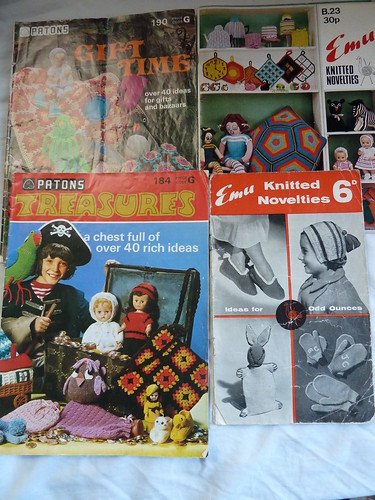
Knitted novelty or "Odd Ounce" books seem to appeal to me particularly, they are not only a source of knitting patterns ranging from useful to bizarre, they are also a piece of social history. Knitting novelty items seems to go back as far as there were women with time on their hands for "fancy work", such as this fabulous knitted pineapple bag Franklin Habit has written about and the booklets I have been collecting are descendants of such patterns. The proliferation of fund raising fêtes and "fayres" increased the need for women, who mostly ran such events, to make these items.
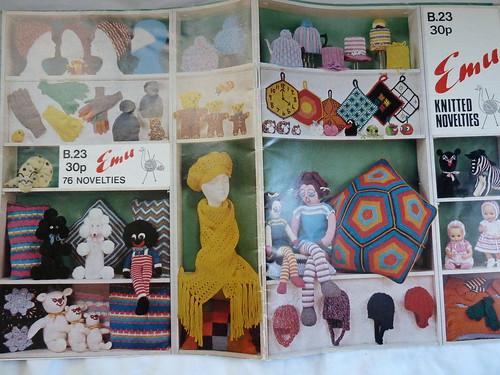
The majority of the items are of household utility, in a fancier form, such as tea cosies, cushions and pot holders in various guises. Hats, scarves, gloves and bed-socks are popular items, all entering the category of "useful presents". There are also toys and frequently dolls' clothes. Then there things one could class as true novelty items, golf club covers, toilet roll covers and poodle bottle covers.
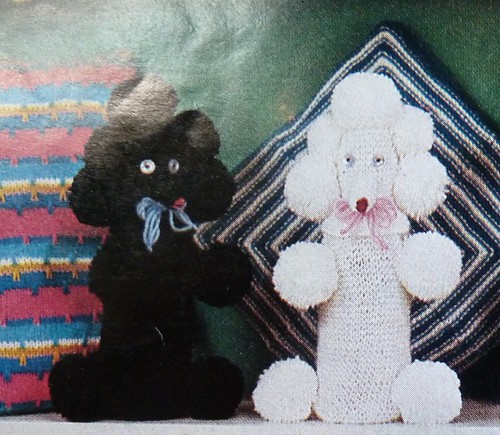
Yet at the same time these booklets represent a something of the constriction of the lives of many women, unable to undertake paid work because of marriage. While the absurdity of many of the items amuses me, there is also behind it a sense of the need to fill in empty hours, even in the comparatively liberated 1960s and 1970s (when the booklets in my collection were published), in lieu of more useful work. This is not to disregard the money that was undoubtedly raised by the sale of such items for charity.
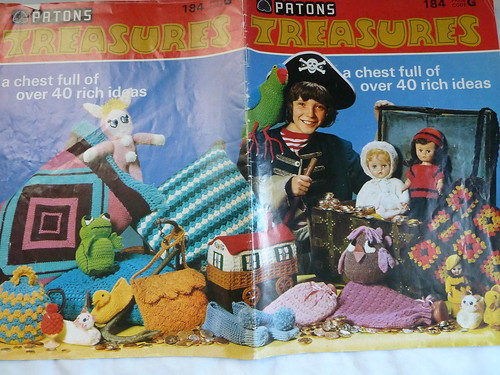
I was particularly taken with the parrot when I spotted this one in a charity shop!
Some of the patterns I could see myself making, such as the rabbit hot water bottle cover on the front cover of the oldest booklet in my collection, others, such as the poodle bottle covers I will be giving a miss. The current trend for vintage has even led some companies to republish some of these books, such as this one (even featuring a knitted pineapple tea cosy!) and this one from Patons, although many are still available relatively cheaply second hand.
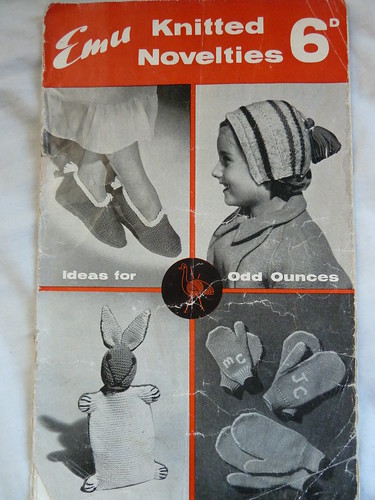
Apologies for the quality of photographs in this post - the paper is quite shiny on most of these booklets making it tricky.


